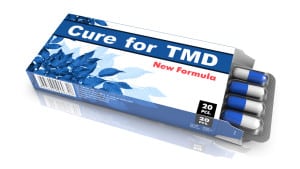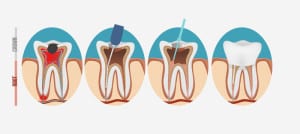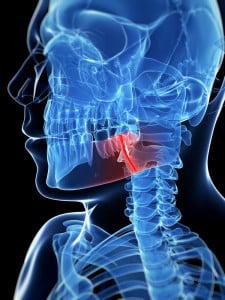 Although it has been proven that fluoride is an effective way to fight cavities, there has always been a question as to its safety. Research and experience goes back 60 years when it comes to fluoride safety, yet there are still naysayers. It is good to question. It is good to be sure. In the1930s it was noticed that those communities whose water supply contained certain levels of natural fluoride had a lower rate of tooth decay. All water naturally contains fluoride but not at a level that will combat decay. In 1945 Grand Rapids Michigan became the first U.S. city to add fluoride to its local water supply. Is fluoride safe for your children? Today we discuss the fluoride question.
Although it has been proven that fluoride is an effective way to fight cavities, there has always been a question as to its safety. Research and experience goes back 60 years when it comes to fluoride safety, yet there are still naysayers. It is good to question. It is good to be sure. In the1930s it was noticed that those communities whose water supply contained certain levels of natural fluoride had a lower rate of tooth decay. All water naturally contains fluoride but not at a level that will combat decay. In 1945 Grand Rapids Michigan became the first U.S. city to add fluoride to its local water supply. Is fluoride safe for your children? Today we discuss the fluoride question.
Teeth Built Tough With Dental Sealants
 Are your children’s teeth built tough? Teeth are tough, but they aren’t indestructible. They can develop cavities, get broken, cracked, fractured, and even knocked out. If you could prevent any one of those things from happening with a clear liquid and a paint brush, would you? Your children’s teeth can be built tough with dental sealants. If you aren’t familiar with sealants, or even if you are, take our true and false quiz below to find out how much you know.
Are your children’s teeth built tough? Teeth are tough, but they aren’t indestructible. They can develop cavities, get broken, cracked, fractured, and even knocked out. If you could prevent any one of those things from happening with a clear liquid and a paint brush, would you? Your children’s teeth can be built tough with dental sealants. If you aren’t familiar with sealants, or even if you are, take our true and false quiz below to find out how much you know.
Does Your Child Fear The Dentist?
 According to research, parents who fear the dentist will pass that fear on to their children. They may not even do it consciously. Children are very in tuned to their parent’s feelings and emotions and can pick up on little cues. But it is important that children learn to feel comfortable with dental visits especially since two of the major reasons people skip their dental care is due to dental fear and anxiety. Does your child fear the dentist?
According to research, parents who fear the dentist will pass that fear on to their children. They may not even do it consciously. Children are very in tuned to their parent’s feelings and emotions and can pick up on little cues. But it is important that children learn to feel comfortable with dental visits especially since two of the major reasons people skip their dental care is due to dental fear and anxiety. Does your child fear the dentist?
Some Facts About Bruxism
 Bruxism is a Greek word that means the habit of grinding your teeth unconsciously. People often brux at night while they are sleeping, but you may also brux while you are awake. You still may not be aware of it because it often happens while you are concentrating, stressed, upset, or angry. Although you may not be aware you are bruxing, you may be getting symptoms from it just the same. Today we share some facts about bruxism.
Bruxism is a Greek word that means the habit of grinding your teeth unconsciously. People often brux at night while they are sleeping, but you may also brux while you are awake. You still may not be aware of it because it often happens while you are concentrating, stressed, upset, or angry. Although you may not be aware you are bruxing, you may be getting symptoms from it just the same. Today we share some facts about bruxism.
Stop Snoring! Please!
 Snoring is common. Over 60 percent of the adult population snores. However, snoring can put stress on a relationship. In fact, in some cases couples are forced to sleep apart due to the excessive snoring of their partner. Excessive, loud snoring can be an indication of obstructive sleep apnea, a potentially serious condition. But not all people who snore have sleep apnea. Even so, snoring can be treated. If your partner has a snoring problem don’t stop at saying “Stop Snoring! Please!” contact Dr. Smith to learn about treatment options.
Snoring is common. Over 60 percent of the adult population snores. However, snoring can put stress on a relationship. In fact, in some cases couples are forced to sleep apart due to the excessive snoring of their partner. Excessive, loud snoring can be an indication of obstructive sleep apnea, a potentially serious condition. But not all people who snore have sleep apnea. Even so, snoring can be treated. If your partner has a snoring problem don’t stop at saying “Stop Snoring! Please!” contact Dr. Smith to learn about treatment options.
Are Your TMJs Stressed Out?
 Temporomandibular joint is a very big word for your jaw joint. Your jaw joint connects your lower jaw (your mandible) to your skull via your temporal bones, hence, the term temporomandibular joint. Your jaw joints are in front of your ears and allow your jaw to move. Your temporomandibular joints (TMJs) are probably the most active joint in your body. They take a lot of wear and tear. You use your TMJs to talk, chew, yawn, and sing. If you are a bruxer–meaning you chronically grind and clench your teeth–you are putting even more stress on your TMJs. Are your TMJs stressed out?
Temporomandibular joint is a very big word for your jaw joint. Your jaw joint connects your lower jaw (your mandible) to your skull via your temporal bones, hence, the term temporomandibular joint. Your jaw joints are in front of your ears and allow your jaw to move. Your temporomandibular joints (TMJs) are probably the most active joint in your body. They take a lot of wear and tear. You use your TMJs to talk, chew, yawn, and sing. If you are a bruxer–meaning you chronically grind and clench your teeth–you are putting even more stress on your TMJs. Are your TMJs stressed out?
A Sleep Apnea Q and A
 Did you know that many of today’s modern dentists can treat sleep disorders, particularly snoring and sleep apnea? Millions of people suffer from sleep apnea all over the world, an estimated 22 million in the United States alone. What is sleep apnea? What are its symptoms? Is it dangerous? Can it be treated? Today we are going to answer these questions with a sleep apnea Q and A.
Did you know that many of today’s modern dentists can treat sleep disorders, particularly snoring and sleep apnea? Millions of people suffer from sleep apnea all over the world, an estimated 22 million in the United States alone. What is sleep apnea? What are its symptoms? Is it dangerous? Can it be treated? Today we are going to answer these questions with a sleep apnea Q and A.
You Are Getting Sleepy…
When it’s time for a dental visit, especially for a filling, root canal, extraction, or implant, you want to be comfortable. We want you to be comfortable, too. Here at Pecan Tree Dental that is why we offer sedation, so our patients’ will feel at ease and relaxed during treatment. So many people avoid their dental appointments due to fear and anxiety. When you start skipping dental appointments issues can become more serious and complex. It is best to attend your preventive appointments, and if an issue is discovered, take care of it early. Have no fear, pretty soon you will hear us saying..you are getting sleepy…
(more…)
A Root Canal? Really?
 If that’s your first thought when your dentist mentions root canal treatment, you can stop and think again. Root canal treatment isn’t really as bad as you might think. You may have heard horror stories years ago about root canals or seen something on a sitcom, but root canals aren’t any worse than getting your tooth filled. Take the true and false quiz below to find out how much you know about root canals and if you really need to say “A root canal? Really?”
If that’s your first thought when your dentist mentions root canal treatment, you can stop and think again. Root canal treatment isn’t really as bad as you might think. You may have heard horror stories years ago about root canals or seen something on a sitcom, but root canals aren’t any worse than getting your tooth filled. Take the true and false quiz below to find out how much you know about root canals and if you really need to say “A root canal? Really?”
Why You May Not Be A Candidate For An Implant
 Dental implants are a permanent and stable way to replace a lost tooth. Although the procedure is complex and invasive, it is as if you’ve never lost a tooth. An implant requires the surgical “implant” of a titanium post into your jawbone. The post then osseointegrates with the bone becoming one. This provides a base as stable as the original tooth root. The base is then topped with a crown that is usually fabricated from porcelain because the color and translucency of the material mimics natural teeth. If you are considering such treatment, there are reasons you may not be a candidate for an implant.
Dental implants are a permanent and stable way to replace a lost tooth. Although the procedure is complex and invasive, it is as if you’ve never lost a tooth. An implant requires the surgical “implant” of a titanium post into your jawbone. The post then osseointegrates with the bone becoming one. This provides a base as stable as the original tooth root. The base is then topped with a crown that is usually fabricated from porcelain because the color and translucency of the material mimics natural teeth. If you are considering such treatment, there are reasons you may not be a candidate for an implant.








